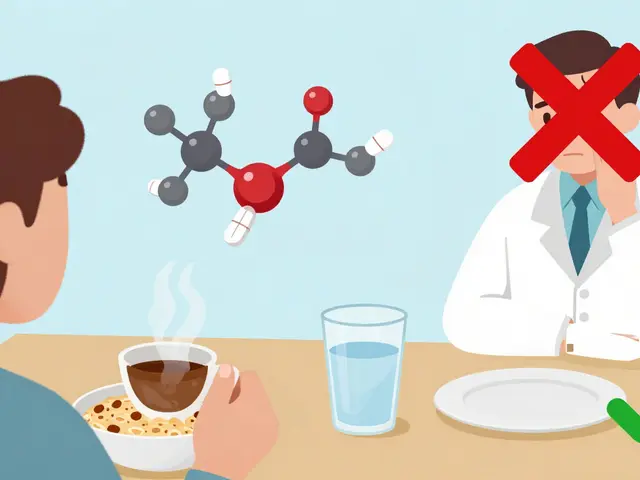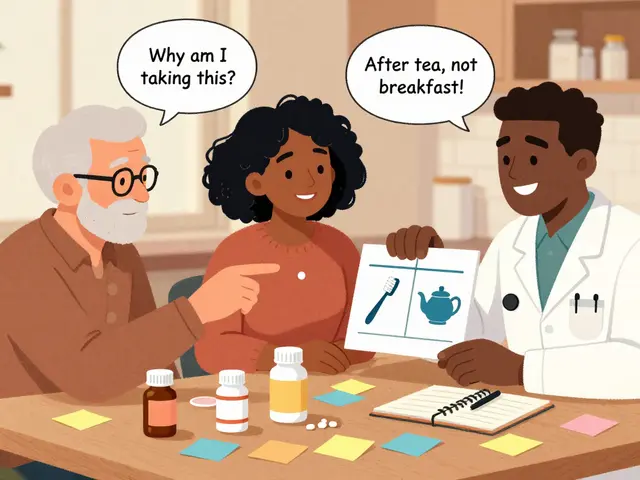Blood Cancer is a group of malignancies that originate in the blood‑forming tissues or immune cells, including leukemia, lymphoma and multiple myeloma. It disrupts normal blood production, leading to fatigue, infections and bleeding, and its ripple effects touch every member of the household.
Understanding Blood Cancers
When a diagnosis lands, the first question is often "what exactly am I dealing with?" Blood cancers differ from solid tumors because they circulate throughout the body, making symptoms vague and treatment complex. According to the World Health Organization, roughly 1.2million new cases of blood cancer are recorded globally each year, with survival rates heavily tied to early detection and access to specialized care.
Common Types and Their Clinical Profiles
Three major entities dominate the landscape:
- Leukemia is a cancer of the bone marrow that produces abnormal white blood cells. Acute forms progress in weeks, while chronic varieties may linger for years.
- Lymphoma is a malignancy of the lymphatic system, often presenting as swelling in lymph nodes. Hodgkin and non‑Hodgkin subtypes show distinct age patterns and treatment responses.
- Multiple Myeloma is a cancer of plasma cells that leads to bone pain, anemia and kidney problems. It accounts for about 10% of all blood cancers.
| Attribute | Leukemia | Lymphoma | Multiple Myeloma |
|---|---|---|---|
| Primary Origin | Bone marrow | Lymphatic tissue | Plasma cells |
| Typical Age | Children (ALL) / Adults (CML) | Young adults (Hodgkin) / Older adults (Non‑Hodgkin) | 55‑70 years |
| 5‑Year Survival | 70% (varies by type) | 85% (Hodgkin) / 55% (Non‑Hodgkin) | 55% (recent advances) |
| Key Treatment | Chemotherapy, targeted therapy | Chemo, radiotherapy, immunotherapy | Stem‑cell transplant, novel agents |
These differences matter not only for clinicians but also for families arranging logistics, budgeting care, and planning daily routines.
Treatment Landscape and Physical Side Effects
Modern regimens blend Chemotherapy with drug‑based attacks that destroy rapidly dividing cells and newer targeted agents. For eligible patients, Stem Cell Transplant offers a potential cure by resetting the bone‑marrow environment.
Physical tolls are immediate: hair loss, nausea, mucositis and profound fatigue. Long‑term, survivors may wrestle with cardiotoxicity, secondary cancers, or chronic graft‑versus‑host disease. Each side effect becomes a scheduling puzzle for caregivers who must manage appointments, medication refills, and household chores.
Emotional and Psychological Toll
Beyond the medical chart, the blood cancer impact on mental health is profound. Patients often report anxiety about relapse, depression from prolonged isolation, and a sense of lost identity. Families experience “anticipatory grief” - mourning the future they imagined for their loved one.
Research from the National Cancer Institute shows that up to 45% of caregivers develop clinically significant stress, comparable to symptoms seen in PTSD. Emotional spillover can strain marriages, affect children's academic performance, and erode social networks.

Financial Strain and Practical Challenges
Money worries loom large. Direct costs include hospital stays, drug prices (some novel agents exceed $100,000 per year), and travel for specialized care. Indirect costs-lost wages, home‑care services, and insurance copays-can push families past the poverty line.
A 2023 American Cancer Society survey found that 30% of blood‑cancer households exhausted their savings within two years of diagnosis. Financial toxicity influences treatment adherence, as patients may skip doses or decline recommended transplants to stay afloat.
Support Systems and Coping Strategies
Resilience grows when information, community, and professional help converge. Key resources include:
- Support Groups are peer‑led meetings that provide emotional validation and practical tips. Both in‑person and virtual formats allow families to share coping tools, from mindfulness apps to budget spreadsheets.
- Psychosocial Services offer counseling, trauma‑focused therapy, and crisis intervention tailored to cancer patients and caregivers.
- Financial navigation offices in major cancer centers help negotiate drug assistance programs, insurance appeals, and charitable grants.
- Integrative therapies-yoga, acupuncture, art therapy-can alleviate pain, improve sleep, and foster a sense of agency.
Family dynamics shift as roles reverse; children may become caretakers, and spouses may need respite care. Open communication, clear delegation of tasks, and scheduled “reset” days are practical ways to avoid burnout.
Related Concepts: Survivorship, Palliative Care, and Clinical Trials
After remission, survivorship care plans become the roadmap for monitoring late effects, vaccination schedules, and lifestyle recommendations. Palliative Care focuses on symptom relief and quality of life, regardless of disease stage works alongside curative intent, providing pain management and emotional support.
Clinical trials remain a lifeline for patients without standard options. Enrollment rates are low-under 10%-often due to lack of awareness or geographic barriers. Connecting families with trial coordinators early can expand treatment horizons.
Looking Ahead: Hope and Ongoing Research
Advances in immunotherapy, CAR‑T cells, and gene editing are reshaping prognosis. For instance, CAR‑T therapy has achieved 80% remission in certain refractory leukemias, though affordability and long‑term safety remain under scrutiny.
Community advocacy continues to push for policy changes that lower drug prices, expand Medicaid coverage, and fund caregiver support programs. Every improvement in the medical arena multiplies downstream benefits for families, easing both emotional strain and financial pressure.

Frequently Asked Questions
What are the most common early symptoms of blood cancer?
Early signs often include persistent fatigue, frequent infections, unexplained bruising or bleeding, bone pain, and swollen lymph nodes. Because these symptoms overlap with less serious illnesses, it's crucial to seek medical evaluation if they persist beyond a few weeks.
How can families manage the financial burden of treatment?
Start by contacting the hospital’s financial navigation office. They can assess eligibility for drug assistance programs, negotiate with insurers, and connect you to nonprofit grants. Tracking all medical expenses in a spreadsheet helps identify deductible items for tax purposes.
When should a caregiver consider professional respite services?
If you notice signs of chronic exhaustion, irritability, or declining health, it’s time to seek respite. Even a few hours a week of professional care can prevent burnout and improve the quality of support you provide.
Are there lifestyle changes that improve outcomes for blood‑cancer patients?
A balanced diet rich in protein, staying physically active within tolerance levels, and avoiding tobacco or excess alcohol can bolster immunity and aid recovery. Many centers also recommend mindfulness or yoga to reduce stress during treatment.
How do clinical trials differ from standard treatments?
Clinical trials test new drugs, combinations, or procedures that are not yet widely available. Participants receive close monitoring, and successful trials can become the next standard of care. The main trade‑off is uncertainty about outcomes and possible side‑effects.



Adam Stewart on 25 September 2025, AT 14:06 PM
Blood cancer really reshapes everyday life, and the ripple effect can feel overwhelming for the whole family. It’s crucial to set up a clear communication channel so everyone knows the schedule and expectations. Small victories, like a good night’s sleep, should be celebrated openly. Remember to ask for help early – it prevents burnout down the road.